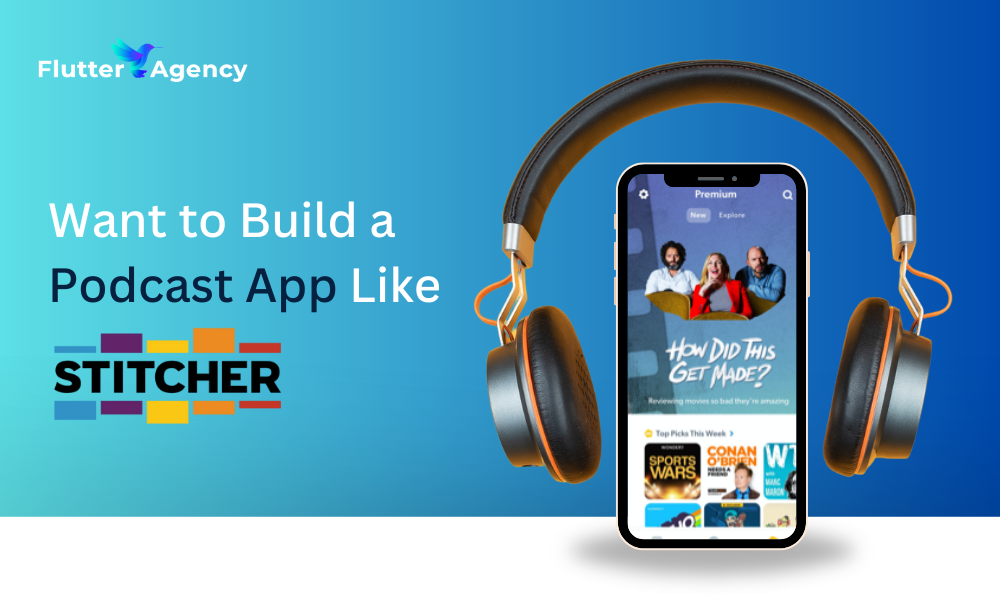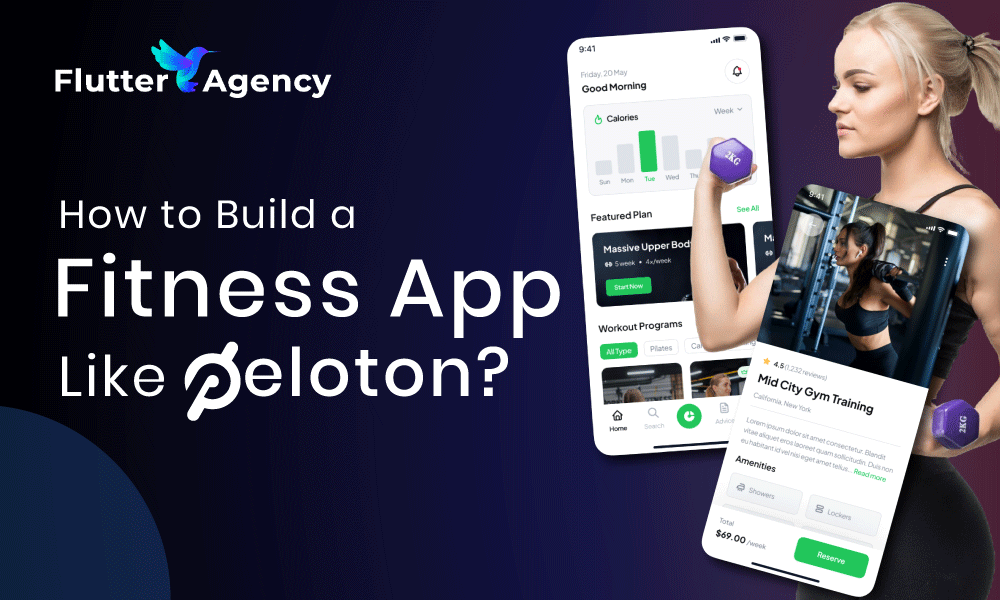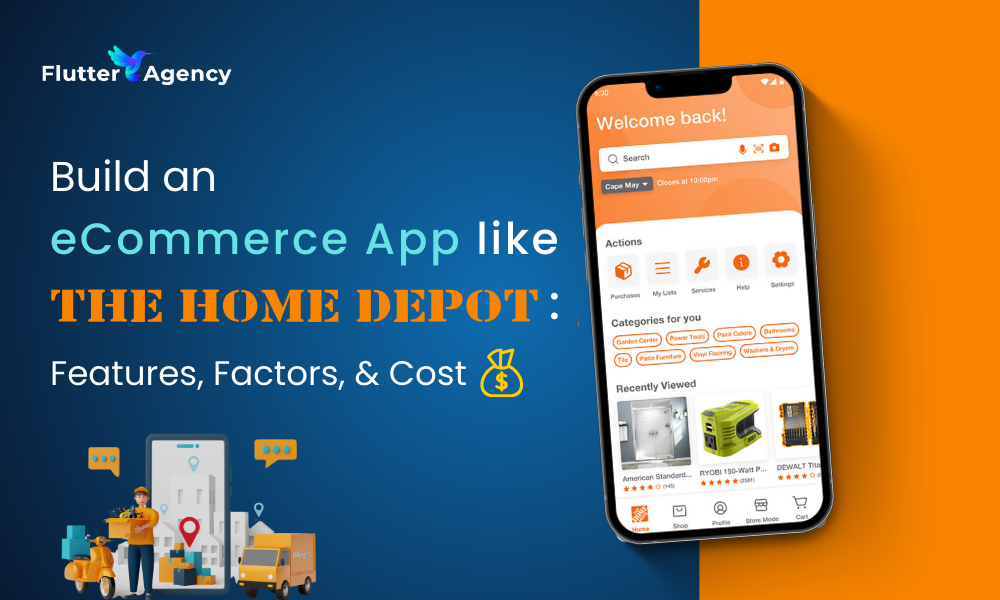FlutterFlow: The Right Platform to Embark Your Startup Journey
In the cut-throat competitive landscape of businesses, time to market, technology used, and profits generated are the cornerstones of defining success. The capability to implement advanced technology to innovate your business application and execute it successfully gives you a competitive edge. Traditional app development, with its daunting coding requirements and long timelines, often poses challenges for startups with an extended time to market.
Enters, low-code platforms that offer a simple solution to accelerate development without compromising on development quality. One of such platforms gaining popularity is, FlutterFlow.
Let’s explore why FlutterFlow is loved by so many startups and what it brings to the table. Before we get into the nitty-gritty of FlutterFlow, let’s dig in a little deeper to understand low-code development.
What Is Low Code Development?
Low code development refers to software development environments that let developers build applications through graphical user interfaces rather than traditional codes. The platforms reduce the amount of manual coding, which results in faster development lifecycles and easier iterations.
Benefits of Low-Code Platforms
- Rapid development and deployment speed.
- Resource management with smaller development teams.
- Better solutions with less coding needs
- Easy to use by non-technical users, making it easier for them to contribute to the app development process.
- Much easier to make changes and updates.
Thus with the ease and accessibility to even non-technical users, Low Code development is helping startups create professional applications on a budget. Some of the popular low-code platforms are Appian, Creatio, Outsystems, FlutterFlow, etc.
FlutterFlow gets a lead over others as it is taking low code development to new heights. Let’s now explore what makes FlutterFlow a perfect platform for your startup.
What is FlutterFlow?
FlutterFlow is built on Google’s Flutter framework, designed for developing cross-platform applications for Android, iOS, and the web. It offers a visual design interface, allowing users to plan app layouts effortlessly through simple drag-and-drop capability. FlutterFlow helps real-time collaboration, making it best for teams working together on a development project.
With an easy-to-use interface, no technical skills, and a strong framework to back it, FlutterFlow has been gaining popularity since it was conceived. Whether you are a startup or a small-scale business, if you want to create a mobile application that resonates with your audience, then, choose the FlutterFlow platform and let things flow.
Ready to bring your startup's app idea to life quickly and affordably?
Explore FlutterFlow today and transform your vision into reality.
Why FlutterFlow Is Perfect for Startups?
FlutterFlow is taking low code development to new heights by offering a visual development environment where users can build the solutions they want without compromising on app feature quality.
FlutterFlow basically incorporates and promotes best practices for software development. The platform streamlines complex IDE tasks into an intuitive UI, making developer interactions easier. To use the platform one needs basic training, thus even non-developers get into the basics of core app development concepts.
FlutterFlow entered the market with a vision to go from low code development to visual development. Here’s how the team is planning to achieve their goals:
- App Architecture: The codes generated using FlutterFlow meet the standards set by Flutter and Dart. They abide by the standard app market, thus helping users with a credible app development solution.
- Testing and Debugging: The developers can simply test and debug the applications by running, testing, and resolving issues. This allows startups to enter the market with a flawless and highly rewarding application.
- Collaboration: With modular development, smart version controls, and comprehensive access management, users can collaborate easily for better results.
- User Experience: With an easy-to-explore interface, edit on clicks, ensure consistency, incorporate AI where possible, and users can switch between code and GUI.
FlutterFlow offers startups an environment where they can cross-operate, collaborate, and discuss their problems. The platform is conceived to make development easier, more convenient, and accessible for non-tech people also, who can easily make their contribution to the web now!
Some of the other advantages of the platform are:
1. Quick Development with No Errors
The cheat code to making the best of your business is, to enter the market ASAP.
One of the most significant benefits of FlutterFlow is the speed at which the projects may develop. The platform’s visual interface and pre-built elements allow for speedy prototyping and development. Startups can fast-build minimum viable products (MVPs) to check thoughts in the marketplace without making a heavy investment in development sources.
Thus, you can create a product faster, take it to the market, and get feedback easily. We understand not every product works well on the first go, but with FlutterFlow you get the ease of making iterations and offering your audience a solution they’d appreciate.
2. Cost-Effectiveness
Most startups run on budget constraints. FlutterFlow helps reduce investing in large teams of seasoned developers. The platform’s drag-and-drop capability and pre-built templates lessen the quantity of custom code required, which translates to lower support and maintenance fees. A developer with lesser experience and understanding of the development languages can also, easily create an app here making it easier for you to invest your funds in other business verticals too.
3. Cross-Platform Development
FlutterFlow’s foundation lies at the Flutter framework which guarantees that applications are cross-platform by default. Thus by picking FlutterFlow startups can create and deploy applications to iOS, Android, and net platforms simultaneously. This cross-platform functionality is crucial for startups looking to maximize their target audience and digital presence without incurring the expenses and complexities of keeping separate codebases for specific platforms.
4. Ease of Use
FlutterFlow is designed to be user-friendly, making it accessible to both skilled app developers and those with limited coding exposure. This democratization of app development means that non-technical founders and team members can contribute to the development procedure. FlutterFlow also gives tremendous documentation and tutorials, further decreasing the barrier to entry.
Because it is easy to use, the startup founders can make changes to the product as they want.
5. Scalability and Flexibility
Despite being a low-code platform, FlutterFlow gives massive flexibility. Users can add custom code to increase the functionality of their programs, making sure that they are now not confined with the aid of the platform’s built-in features. FlutterFlow additionally integrates seamlessly with backend services like Firebase and Supabase, bearing in mind robust and scalable backend solutions.
6. Community and Support
Being part of the Flutter ecosystem, FlutterFlow advantages from an active and supportive community. This network affords a wealth of assets, tutorials, and discussions that could assist startups conquer challenges and make the most of the platform. Additionally, FlutterFlow is continually evolving, with new capabilities and improvements being brought often based on user comments.
New users can always connect with the community for any assistance and customization thus creating a growth-oriented and learning ecosystem.
These are some of the most popular reasons why FlutterFlow is one of the most prominent low-code platforms for startups. So, if you are aiming to start your entrepreneurial journey and aren’t sure how to start without investing much in development, FlutterFlow is your trusted development partner.
Addressing Common Concerns of Using FlutterFlow
FlutterFlow may offer a great advantage for startups and businesses, but it does come with some limitations. Let’s explore the common concerns when working on the platform.
Customization Limits
The most common and often-faced concern with low-code platforms is the potential difficulty of customization. However, FlutterFlow mitigates this with the aid of custom code integration. This ensures that whilst you can enjoy the speed and efficiency of low-code development, you still have the flexibility to put into effect custom functions as wanted.
Scalability
Another concern is scalability. FlutterFlow is designed to handle significant user load and great data volumes through its integration with a powerful backend. Startups can hopefully scale their packages as their customer base expands, knowing that the platform is designed and developed to meet their business needs.
Startups with a limited user base can use the capabilities of FlutterFlow for future preparedness.
Learning Curve
While FlutterFlow is user-friendly, there can still be a strong learning curve, specifically for those new to app development. However, the considerable assets available, together with documentation, tutorials, and network help, assist mitigate this challenge.
Startups can always seek assistance from other development agencies experienced in FlutterFlow to boost learning and make sure first-class practices are followed. With little time and dedication, one can excel in their skills and implement them to build innovative products for the future.
Conclusion
FlutterFlow represents a tremendous advancement in the realm of low-code development systems, particularly for startups. Its combination of speed, value-effectiveness, ease of use, and flexibility makes it a super choice for early-stage businesses seeking to deliver their thoughts to the marketplace. By leveraging FlutterFlow, startups can reduce development time and fees, build cross-platform applications, and remain agile in a competitive landscape.
For startups and small-scale organizations trying to maximize their assets and boost their development process, FlutterFlow offers a compelling solution that bridges the gap between rapid prototyping and strong, scalable app development. As the platform continues to evolve and improve, it’s far poised to end up a good extra effective device for startups aiming to innovate and be triumphant in the virtual age.
Contemporary ventures
Recent blog
ready to get started?
Fill out the form below and we will be in touch soon!
"*" indicates required fields

















